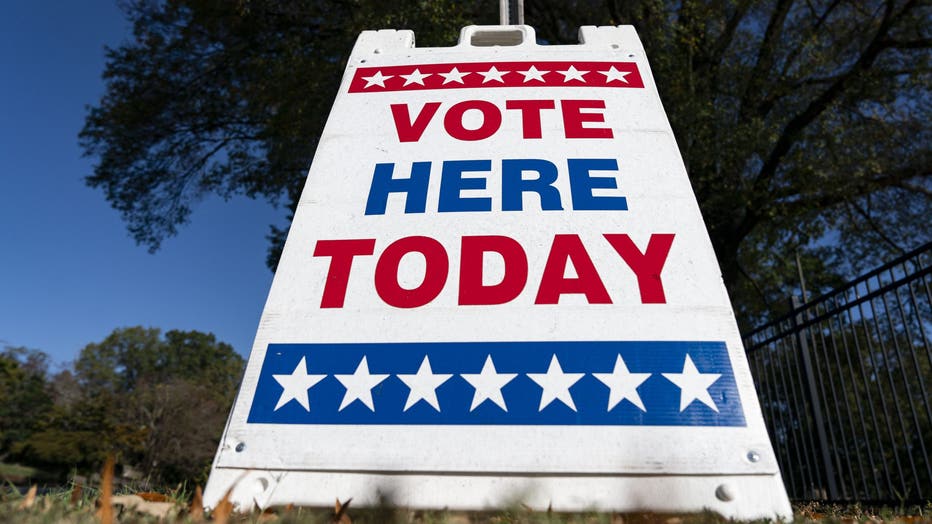What are the swing states? Who's winning? Your election questions, answered
Less than 24 hours to go in the race for the White House
Election Day is nearly upon us. In a matter of hours, the final votes in the 2024 presidential election will be cast. Dr.Patricia Crouse, political expert with the University of New Haven, joined LiveNOW from FOX to discuss.
In less than 24 hours, millions of Americans will be casting their ballot on Election Day.
Not only will the next president of the United States be decided, but voters will also decide which party next controls Congress.
From swing states to what the election polls are saying, here’s everything to know in the final hours before the big day:
When is Election Day?
Election Day is always on the first Tuesday in November. This year, it is Nov. 5.
What are the swing states?
Experts have identified seven key swing states this year: Arizona, Georgia, Michigan, Nevada, North Carolina, Pennsylvania and Wisconsin.
It takes 270 electoral votes to win the White House, and these swing states have a collective 93 votes that will ultimately decide who wins.
RELATED: Election Day freebies and deals
Where to vote

FILE - A sign to vote at a polling location at North Carolina Agricultural and Technical State University during the last day of early voting in Greensboro, North Carolina, US, on Saturday, Nov. 2, 2024. Photographer: Al Drago/Bloomberg via Getty Ima
You can find your polling place on your voter registration card, or by checking online.
Sites that will help you find your voting location include Vote.org and National Association of Secretaries of State.
What time does voting open?
Polling operations vary by state, with some opening as early as 6 a.m. local time and others not until 8 a.m.
Check your state and county websites before heading out to vote.
Here are the opening times for the swing states:
- 6:30 a.m. ET - North Carolina
- 7 a.m. ET - Georgia, Michigan, Pennsylvania
- 8 a.m. ET - Arizona, Wisconsin
- 10 a.m. ET - Nevada
When do polls close?
Closing time for polls also varies by state. Check your state and county website before heading out to vote.
Here are closing times for the swing states:
- 7 p.m. ET - Georgia
- 7:30 p.m. ET - North Carolina
- 8 p.m. ET - Michigan, Pennsylvania
- 9 p.m. ET - Wisconsin, Arizona
- 10 p.m. ET - Nevada
Who’s winning election polls?
Poll shows Harris & Trump virtually split by gender
We are one day out from Election Day and a poll shows Harris & Trump virtually split by gender. Political analyst, Anthony Russo. joins LiveNOW form FOX to discuss the split, as the race to the White House tightens.
Election Day is in less than 24 hours, and the race between Vice President Kamala Harris and former President Donald Trump remains a toss-up, according to polling.
Harris maintained a slight lead nationally on Monday, while Trump still had an edge in several of the swing states.
Harris had a 1% lead over Trump (48.3% vs. 47.3%) based on an average of 22 polls, with the latest as of Nov. 3, according to the polling site 270toWin. That lead is well within the margin of error.
When looking at the state level, Trump maintained an edge over Harris in several battlegrounds. Polls on Monday showed him with a slight lead in Arizona, Georgia, Nevada, North Carolina, and Pennsylvania, according to 270toWin.
Harris was ahead on Monday in Michigan and Wisconsin, 270toWin reported.
READ MORE: Presidential polls today: Who's winning in Trump vs. Harris race with 1 day left?
Where are the candidates campaigning?
Harris will spend all of Monday in Pennsylvania, while Trump will visit North Carolina, Pennsylvania and Michigan.
What counts as a landslide?
A candidate is said to win in a "landslide" if he or she has an overwhelming margin of victory.
Since winning the American presidency requires winning the electoral college, determining what is a "landslide" or not can be looked at by how many states or electoral votes the candidate wins.
For example, most experts agree the last landslide US presidential election was in 1988, when George H.W. Bush received 426 electoral votes – or nearly 80%. He won 40 states that year.
Also that decade, Ronald Reagan won more than 90% of electoral votes in 1980 and 1984.
RELATED: The 2000 presidential election and Florida recount: ‘Truly a crazy year’
When will we know the results?
It’s likely we’ll be waiting for presidential election results past election night.
Each state has unique vote-counting procedures impacting how quickly results will be available on election night, and the same can especially be said for the seven swing states that will decide the winner.
Key factors affecting lengthier waiting times include mail-in deadlines, early voting options and specific state policies on ballot counting.
States like Pennsylvania and Nevada, for example, could see delays due to mail-in ballot processing rules.
READ MORE: Here’s when we’ll know the election results in key swing states
The Source: Information in this article was taken from previous FOX Television Station reportings and from government websites of the seven swing states. This story was reported from Detroit.

